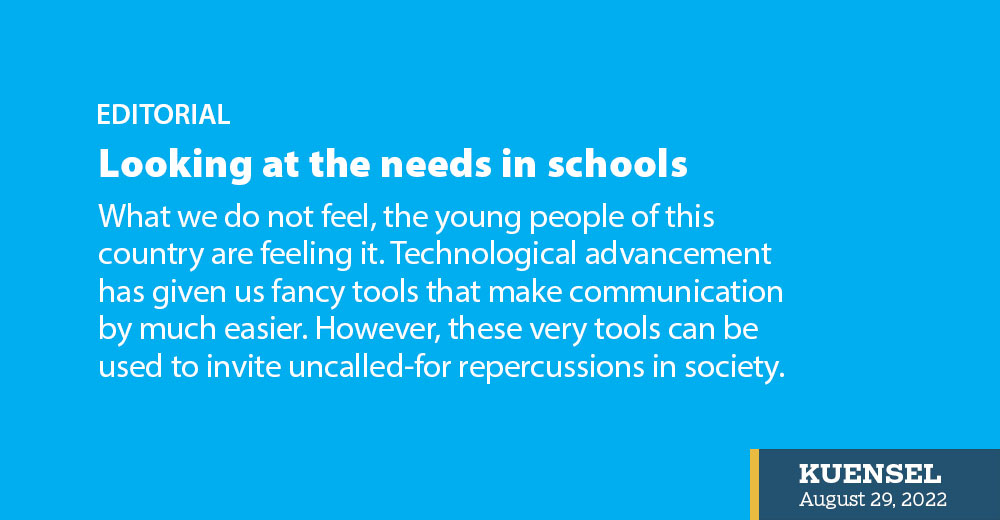What we do not feel, the young people of this country are feeling it. Technological advancement has given us fancy tools that make communication by much easier. However, these very tools can be used to invite uncalled-for repercussions in society.
Cyberbullying is reportedly rampant in Bhutanese schools. As affluence grows, the first thing that a child asks his or her parents, sometimes as a reward for working academically hard, is a mobile phone. What happens is that the world becomes so much more stretchable.
Young people are spending a lot of time online these days, on social media or gaming platforms.
Is that bad? Not necessarily. But it is a cause of concern when the tools available to us in this day and age can be weaponised.
Cyberbullying, according to experts, is another form of bullying, which now takes place through calls or messages over digital devices like cell phones, computers, and tablets. Because cyberbullying can happen even when you are in the comfort of your home, it is dangerous.
Cyberbullying can occur through SMS, text, and apps, or online in social media, forums, or gaming where people can view, participate in, or share content because it includes sending, posting, or sharing negative, harmful, false, or mean content about someone else.
More often than not, it can include sharing personal or private information about someone else causing embarrassment or humiliation.
Given these situations on the rise, it would be interesting to see how our school system and parents are dealing with it. Some parents do not even care, leaving it all to the school.
But are our schools able to deal with such issues? For all the effort being put in, schools and education ministry deserve our praise.
But we also know that a large number of our schools do not have the skills and dedicated personnel to deal with such painful experiences that students are forced to undergo.
Why is there this gap?
Any form of bullying in schools and education institutes must be wiped out. Now that technology makes us more free-ranging, so to speak, there is a need to look at threats from unconventional quarters.
Each and every school in Bhutan must have at least a qualified and trained counsellor. That’s just the beginning. There must be a system in place that can respond not just quickly but also very efficiently.
Addressing this bane of technological development will take us far.


